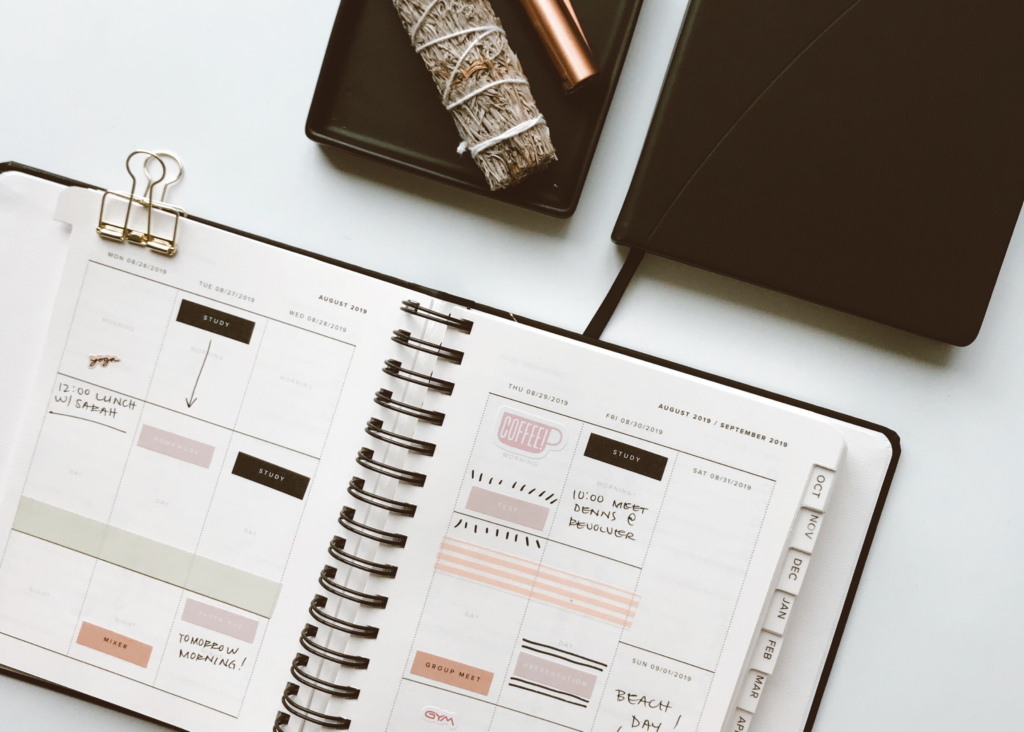10 Things to Do When You Can’t Focus While Working at Home
Procrastination Strikes Again! Ugh. I can’t focus while working at home!
I am in the middle of an unfocused, unproductive morning. After two days off, and a weekend with a head cold, focusing seems to be a herculean (and unsuccessful) effort and I have succumbed to every distraction that has come my way, including watching part of a table read of Fast Times at Ridgemont High (do not click if you are trying to get something done right now! Don’t say I didn’t warn you!).
I Can’t Focus While Working at Home today!
I have texted, checked my email several times, done laundry (didn’t need to do laundry today), given myself a gua sha facial, made several different snacks and tea, and so much more. It is 11:39 a.m., and I have had my house to myself since 9:15. I have accomplished exactly one six-minute task (well…if you don’t count the self-care of the facial. I am going to count it).
I need to get out of this funk!
Do you ever have days like this? If not, tell me how you avoid them! If you do, read on. I have a few tips that have helped me get moving and productive even on my least focused day (which, unfortunately, happen much more often than I’d like)
10 things to do when you can’t focus while working at home to get you back on track to a productive day:
1. Know when you are most distracted and work around it.
The first thing to do is to help prevent lack of focus and distraction.
I don’t know about you, but I have a harder time getting to work after a few days of not working, so for me Saturday is my hardest day to really dig deep and get into big projects. If I end up taking the weekend off, then Monday becomes almost impossible.
So, I plan my week around this. I generally use Saturday as my “catch up and assess day.” There will always be projects that didn’t get finished, that didn’t even get started, loose ends, and little things that came up. I use Saturday for these. Usually these projects are short and offer a quick feeling of success.
I then plan for the rest of the work week, which for me is Sunday through Wednesday and my days off (Thursday and Friday).
I also lose focus (not to mention motivation and self-control) toward the end of the day. By around 2 or 3, I cannot concentrate on much. I either need a long break or shorter easier projects.
I plan my batch work for later in the week but earlier in the, when I am my most focused.
2. Set goals at the beginning of the week.
I set goals on Saturday, so that I know going into the more productive days what I need to accomplish. I usually set a weekly goal (one big long-term project that I want to focus on) and a daily goal. I limit each day’s goal to one big thing, and a few secondary things, usually no more than three or four.
3. Focus on one thing each day.
Often, my daily goals aren’t something that can be done in just the one day, but are the focus of the day.
For example, my Thursday goal is almost always “the yard.” I am working on clearing it out so we can landscape in the near future. I most certainly won’t get it done in just one day, but if I spend an hour or so back there while the kids play, I consider myself successful.
I treat my work the same way. Each day has a to do that is the focus of the day. Sometimes it is something that can be finished in part of one day, other times it is a long-term project that I focus on for the majority of that day, and often it is a recurring project that needs a dedicated morning every week.
Having a clear vision of what my week should look like helps me stay clear and focused. It also helps with an important feeling of accomplishment when the first most important thing gets done each day.
4. Check your “under five minute” list.
I keep a list of “less than five minute” to dos. I carry it with me everywhere so that if I am waiting or have a few spare minutes I can knock something off my list. It is usually little annoying things like “put Untamed on hold at the library,” and “order goggles.” (both done today! hurray!).
Checking these things off gets a few things done when I am least focused, an obvious win. But more importantly, it gives me the feeling of accomplishment that often helps propel me into being more focused.
Once those things are done, I try to move on to larger accomplishments.
These small things are often important and nagging items that we spend a lot more time thinking about than actually doing. When I keep them all on the same list, I can prioritize them, knock them out quickly, and then stop thinking about them, which clears my mind for more important things.
I also use these as the breaks between my Pomodoros. These quick wins help me keep my paperwork and small tasks from getting out of control.
5. Find tasks that move the needle that are easy to do when you aren’t focused.
I like to write. I know that if I can’t focus on a long-term project, I can usually sit down and write a few things. I also almost always have a cleaning project that will make me feel more focused and less cluttered. These are the things that I tackle when I am feeling less than focused. I will knock out my email newsletter or clear a countertop.
After I’ve done those things (things that are important, and do move the needle for me), I can usually move on to something else that takes a little more focus.
6. Just do the next thing.
Often when feeling unfocused, it is because we aren’t sure what needs to be done next. When I feel like this, I know that I will have a hard time starting anything or deciding anything. So, I just pick the next thing on my list. If the next thing is “wash car,” I do it. If it is “call client,” I do that.
I just do the next thing on the list, regardless of its importance to my day’s goals. But, I likely wouldn’t have put it on my weekly list if it didn’t need to get done at some point.
I don’t love being reactive like this, and would rather batch work my client calls and errands, because of course, that leads to a more productive day and is certainly a better use of my time, but when I lack focus, batching becomes incredibly difficult. So, I just work my way down my list.
7. Take a break
Sometimes, when we are unable to focus it is because we’ve done too much. We have just maxed out our brain’s ability to keep at something. I notice this a lot around two or three in the afternoon. So, I take a break. Usually, I’ll do something quick, like have a snack or take a quick walk. Sometimes, I will meditate for a few minutes. If I am really burnt out, I’ll take a quick power nap.
Anything to step away from my computer and not think about work for a bit.
8. Give yourself some slack.
There are days that are just not going to be as focused as others. It happens to all of us. Cut yourself some slack on these days and let it go.
I also build “catching up” into my schedule. This allows for less productive days (and more importantly, the ability to handle the extras that inevitably come up or the projects that end up taking much more time than expected!).
9. Figure out why you are feeling unfocused.
If you find that you are having more and more unproductive, unfocused days, try to be a little reflective. Can you figure out why?
Are you more stressed out than usual?
Do you have a client that is extra-needy and drains you?
Are your kids going through something that is taking a lot out of you?
How are you feeling physically? Emotionally?
Is there a relationship that is struggling?
Spend some time taking a brief self-assessment and you might realize that your lack of focus is because your mind and body are working out something else.
I sometimes don’t realize when one part of my life has taken over the other parts. Usually something personal takes over my work day, but it can go the other direction as well. When I am upset about a demanding client or the rough morning I had with my kids, I find myself getting distracted.
When it happens for more than just one part of a day, I realize that I need to work through it in a more meaningful way.
Sometimes, I need to talk to a friend, other times I just need to take a long shower or a short walk. Sometimes it becomes heavy enough to bring to my therapist’s office. No matter, if I realize there is something on my mind that is causing my distraction, dealing with it or working through it often helps.
If it is a big distraction, like grief or illness, I do my best to either compartmentalize it for now or give myself time. Sometimes, I am successful, others, I just need to wait it out and do the small stuff or the next best thing.
10. Take care of yourself.
For me, the best way to stay focused is to take care of my mental and physical health.
If I feel good, I can usually focus better. If I don’t, I can’t focus while working at home (or anywhere else, really). Sometimes, all it takes is a short nap and some alone time on the couch with a great book. Other times it involves much more self-care than I think I have time for. I usually find that I waste much more time by being unfocused than I would have had I given myself a day to take care of myself.
If you are really unfocused, you may just need a day off. Take it if you can. And come back to work extra motivated and productive tomorrow. Work on the little things today or work on nothing at all.
I have noticed that if I don’t give myself a true day off from time to time, my mind and body will force it on me by getting sick or just not being able to focus. I try to prevent this by noticing it coming on and allowing for down time.
I also find that if I regularly find time to eat right, workout a little, and do a little self-care (all on my every day list), I am much more focused the rest of the day.
Is there anything you do to when you find you can’t focus while working at home? Anything to prevent it in the first place?





